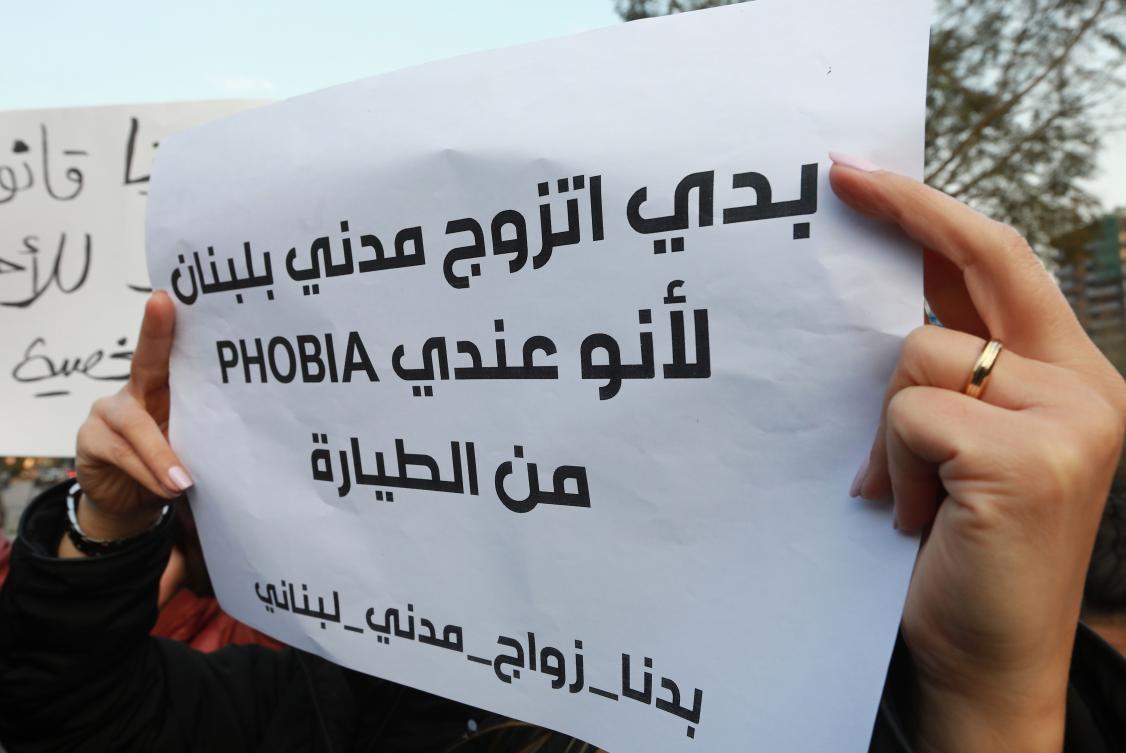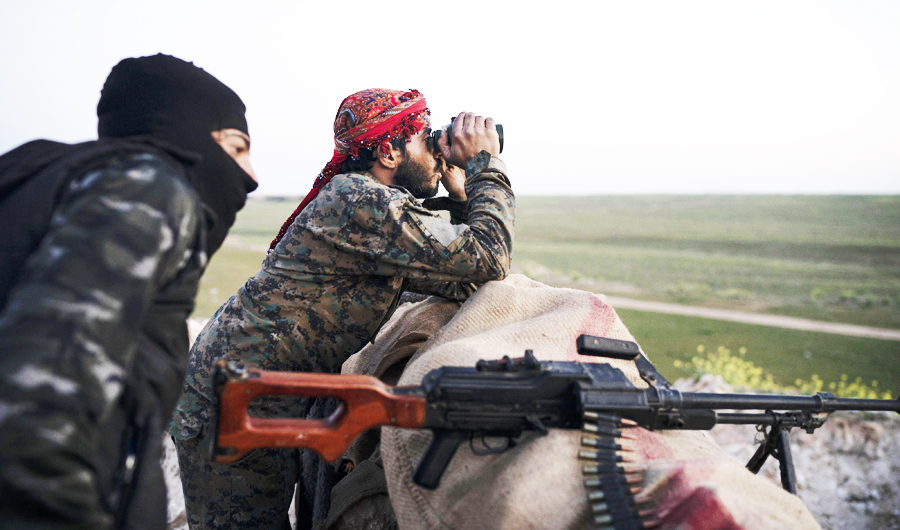Lebanese demand civil marriage on home soil
BEIRUT: Dozens of protesters rallied in the Lebanese capital Beirut on Saturday, calling on the government to recognise civil marriages carried out on home soil.
The demonstrators gathered in front of Lebanon’s interior ministry, days after recently-appointed Interior Minister Raya al-Hasan said she is willing to engage in “serious and profound dialogue” over the issue.
The minister’s comments prompted a backlash from religious bodies, including the highest Sunni authority in Lebanon, and stirred debate on social media.
Lebanon has 15 separate personal status laws for its recognised religions but no civil code covering issues such as marriage.
Many Lebanese couples travel to neighbouring Cyprus to tie the knot in a civil ceremony, because Lebanese authorities recognise such unions only if they have been registered abroad.
Hasan, the first female interior minister in Lebanon and the Arab world, touched on the issue of civil unions in an interview with Euronews last week.
She said she would “personally endorse” attempts to establish a framework to govern civil marriages in Lebanon.
“I will try to open the door for serious and profound dialogue on this issue with all religious authorities and others, with the support of Prime Minister Saad Hariri,” she said.
Dar al-Fatwa, the highest Sunni authority in Lebanon, issued a response the day after Hasan’s interview was published, saying it “categorically rejects” civil unions conducted on Lebanese soil.
Such unions “violate the provisions of Islamic law” and “contravene the provisions of the Lebanese constitution” regarding the authority of religious courts over personal status issues, it said.
The highest Shiite authority in the country also expressed opposition.
“The Lebanese constitution recognises that every sect has its own personal status laws,” deputy head of the Supreme Islamic Shiite Council said Friday.
“We strongly oppose civil marriage because it violates the constitution,” he said.
The head of Lebanon’s Maronite church, Beshara Rai, however, said he was “not against civil unions” conducted on Lebanese territory.
In 2013, the interior ministry took the unprecedented step of registering a civil marriage conducted in Lebanon.
However, only a handful of civil marriages have been recognised since the landmark decision, campaigner Lucien Bourjeily told AFP on Saturday.
Former president Elias Hrawi in 1998 proposed a civil marriage law, which gained approval from the cabinet only to be halted amid widespread opposition from the country’s religious authorities.


Lawmaker who changed Jordan’s rape law takes on child marriageThe fight to end child marriage



